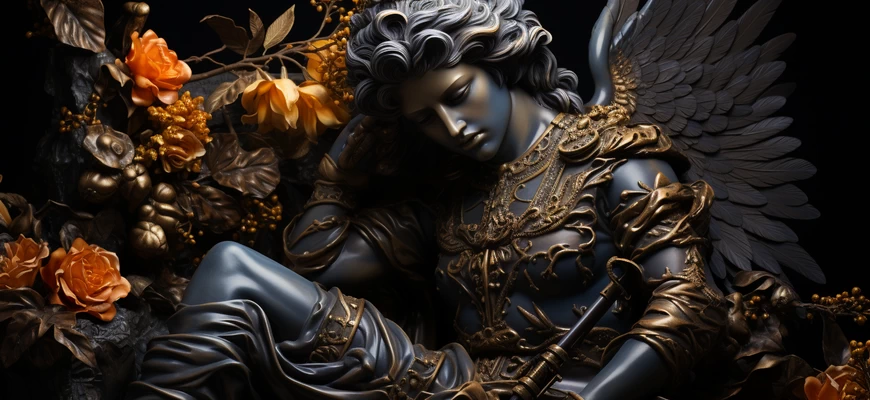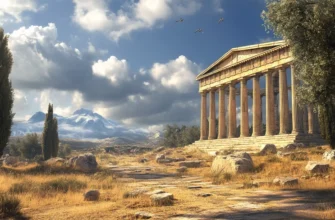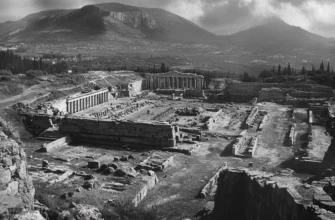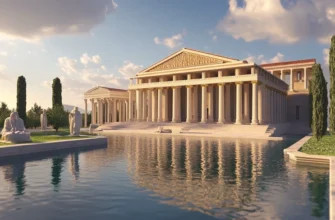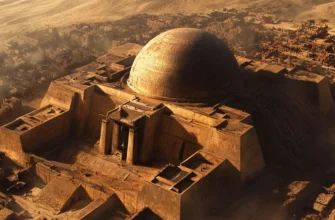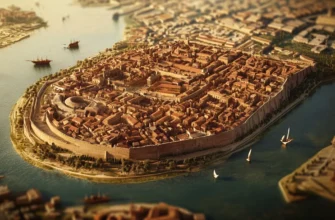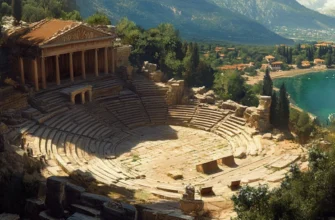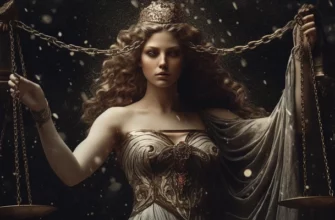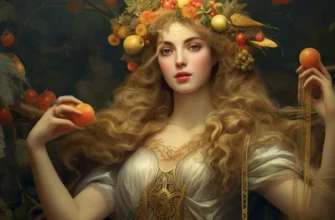Eros, as an ancient Greek god, is a source of interest and fascination due to his role in mythology and his influence on culture. He symbolizes love, passion, and fidelity. He is depicted as a young boy with a bow and arrows that can strike even the most powerful gods. His legends have historically influenced art, literature, and philosophy. Modern culture also often uses the image of Eros to express the power of love and passion.
- Origins and legends
- Myths about the creation of Eros
- Attributes and symbols of Eros
- The bow and arrows of love
- Representation on vases and sculptures
- The role of Eros in mythology
- Influence on the fate of gods and mortals
- Relationship with other gods and goddesses
- The modern influence of Eros
- Use in modern culture
- Popular works using the image of Eros
- Conclusion
Origins and legends
Eros, the ancient Greek god of love, has several legends about his origins. One of them links his origin to the creation of the world, where he appears as one of the first gods. Another legend says that Eros was born from Chaos along with Gaia, the earth. In many myths, he is called the son of Aphrodite, the goddess of beauty and love, and in others, the son of Zeus, the supreme god of Olympus. These different versions point to the importance of Eros as a symbol of important aspects of human life.
Myths about the creation of Eros
There are various myths about the origin of Eros. One legend says that Eros emerged as the primary source of love after the creation of the world. According to another version, Eros was born from Chaos along with Gaia, the earth. According to other myths, he is the son of Aphrodite, the goddess of love, or Zeus, the supreme god of Olympus. These legends emphasize the importance of Eros as a force underlying human relationships and emotions.
It is clear that there are several versions of the myths about the origin of Eros. Here is more detail about each of them:
Origin with the creation of the world: In this myth, Eros is considered the original source of love, appearing after the creation of the world and embodying the power of passion and attachment.
Birth from Chaos and Gaia: This version claims that Eros was born from Chaos, the primordial disorder, together with Gaia, who embodies the earth. This symbolizes his deep connection with nature and the forces that govern the world.
Son of Aphrodite: According to this myth, Eros is the son of Aphrodite, the goddess of love and beauty. He embodies the power of love, which comes from a divine source and influences human hearts.
These myths about the origin of Eros reveal his significance as a divine force that determines the nature of love and passion.
Attributes and symbols of Eros
Eros is known for his distinctive attributes and symbols, which reflect his essence as the god of love. Among his main attributes are the bow and arrows, which he uses to strike love and passion into the hearts of gods and humans. He is also often depicted as a young boy with wings, which reinforces his aspects of divine presence and free movement between heaven and earth. His images are often used to express the power of love and passion in various forms of art and literature.
The bow and arrows of love
The bow and arrows are the main symbols of Eros, the ancient Greek god of love. According to mythology, he possesses golden arrows that can cause unrecognizable love and passion in the hearts of gods and mortals. His bow and arrows are powerful tools that influence the fate and feelings of others, emphasizing his power over the forces of passion and love. This image is often used in art and literature to express the power and influence of love on human life.
Representation on vases and sculptures
Eros is often depicted on ancient Greek vases and sculptures as a young boy with wings, holding a bow and arrows. His eternal youth and beauty are expressed in his perfect physical form. His image often emphasizes his role as a mediator between gods and humans, conveying the power of love that influences all spheres of life. These visual interpretations of Eros leave their mark on ancient Greek art, testifying to the importance of his symbolism and influence on the cultural manifestations of antiquity.
The role of Eros in mythology
In ancient Greek mythology, Eros played a significant role as the god of love, passion, and fertility. He not only influenced the personal relationships of the gods, but also interfered in the affairs of mortals, prompting them to fall in love and come together. Eros played a key role in many myths and legends, provoking great loves and turbulent emotions that influenced the course of events. His power over emotions made him an important mediator between gods and humans, emphasizing the essence of love as one of the strongest and most irresistible elements of human life.
Influence on the fate of gods and mortals
Eros, with his arrows of love, had a huge influence on the fate of both gods and mortals. In ancient Greek myths, his intervention in love often led to many unpredictable situations and stories. He could provoke love even in the most powerful gods, changing their decisions and actions. Mortals also fell victim to his arrows, feeling the powerful force of love that could lead to joy or tragedy. Thus, Eros’ influence on the fate of gods and mortals emphasizes his importance as a force that shapes relationships and events in the mythological world.
Relationship with other gods and goddesses
Eros in ancient Greek mythology had complex relationships with other gods and goddesses. He often acted as the faithful companion of Aphrodite, the goddess of beauty and love, who was his mother in many myths. His arrows influenced the fate of other gods, causing them to fall in love and undergo emotional changes. In some legends, he acted as a messenger for other gods, helping to create new relationships and intertwine destinies. Eros’ interactions with other gods and goddesses emphasize his importance as a mediator between different aspects of the divine world and human life.
The modern influence of Eros
In the modern world, Eros continues to have a significant influence on culture and art. His image and symbolism are actively used in literature, cinema, music, and art as a symbol of the power of love, passion, and romance. Stories about Eros inspire creators around the world to create various works that express the importance and power of emotions in human life. His image is also used to embody ideals of beauty and purity in the modern world, emphasizing the importance of his archetype in the human perception of love and passion.
Use in modern culture
In modern culture, the image of Eros is used to express a wide range of emotions and concepts related to love and passion. He has become a popular symbol of romance and eroticism in literature, cinema, and art. His image is often used in advertising campaigns, fashion, and design as a symbol of eternal love and attractiveness. The use of the image of Eros in modern culture demonstrates his importance as an archetype that remains relevant and powerful for people throughout the ages.
Popular works using the image of Eros
The image of Eros is actively used in various works of contemporary culture, among which the following popular works stand out:
Literature: Erich Fromm’s “The Art of Loving,” in which Eros is seen as an important aspect of human relationships and psychology.
Cinema: the film Eros by Wong Kar-Wai, consisting of three short films that explore the themes of love and sexuality.
Art: a series of paintings and sculptures by contemporary artists that depict Eros in various forms and interpretations, reflecting the modern perception of his image.
Conclusion
This article provides an overview of Eros as the ancient Greek god of love and passion. It demonstrates his importance in ancient Greek mythology and his influence on culture and art. The stories about Eros reflect his power over emotions and his important place in shaping human relationships. This article attempts to understand the role of Eros in the ancient Greek world and his contemporary significance as a symbol of love and emotions.
Eros, a god in ancient Greek mythology, is a symbol of the power of love, passion, and romance. His influence on culture, art, and literature is reflected in a wide range of works that use his image to express deep emotions and relationships. He leaves a tangible mark on world culture as the embodiment of an important aspect of human nature, which is the eternal desire for love and passion.
